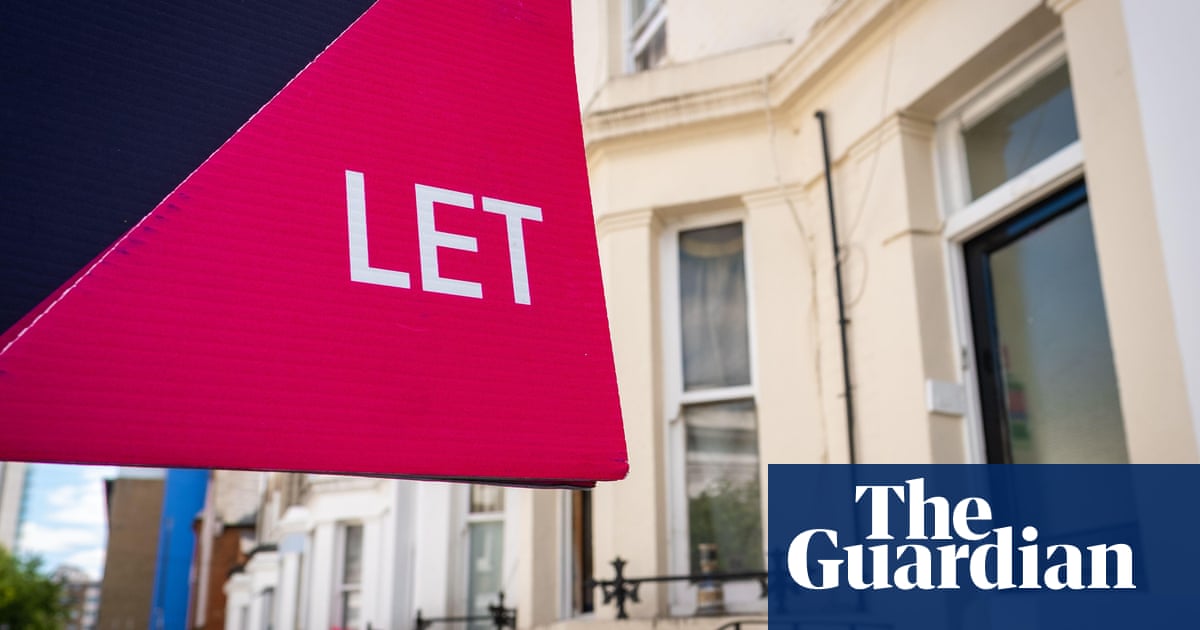
Tenants and campaigners have warned Michael Gove not to create a “back door” for unfair evictions as private rented sector reforms are unveiled on Wednesday.
The legal overhaul will ban no-fault evictions but strengthen landlords’ rights to throw tenants out for antisocial behaviour.
The secretary of state for levelling up, housing and communities will announce the renters’ reform bill affecting 11 million private renters in England.
“Too many renters are living in damp, unsafe, cold homes, powerless to put things right and with the threat of sudden eviction hanging over them,” he will say.
But after lobbying from landlords, he will also “strengthen powers to evict antisocial tenants, broadening the disruptive and harmful activities that can lead to eviction and making it quicker to evict a tenant acting antisocially”, his department said.
It could mean renters being given a two-week notice period for antisocial behaviour evictions and that any behaviour “capable” of “causing nuisance or annoyance” could trigger eviction.
The bill will not, however, limit the frequency with which landlords can hike rents or rent caps. It is expected to outlaw extreme rent increases targeted at pushing tenants out. This will be policed by a new ombudsman for private rented housing and the courts.
It comes four years after the government first promised to ban the 1988 no-fault eviction law, which has had a chilling effect on tenants’ confidence to challenge non-decent homes, of which there are estimated to be 1m in England.
Since that promise was made by Theresa May and repeated in Boris Johnson’s December 2019 Conservative election manifesto, more than 54,000 households in the private rented sector in England have been threatened with a no-fault eviction and almost 17,000 households were evicted by bailiffs.
Gove will say: “Our new laws introduced to parliament today will support the vast majority of responsible landlords who provide quality homes to their tenants, while delivering our manifesto commitment to abolish section 21 no-fault evictions.
“This will ensure that everyone can live somewhere which is decent, safe and secure – a place they’re truly proud to call home.”
Keir Starmer is expected to announce on Wednesday that a Labour government would reform the planning system and “bring back local housing targets”, describing his party as “builders not blockers”.
Labour will become the party of housebuilders, he pledged in an interview with the Times, announcing plans to loosen restrictions on building in the green belt to help boost local housing supply.
The bill looks set to be subject to fierce debate in parliament over definitions of antisocial behaviour and the policing and timing of new decency standards.
Basic decent homes standards, which already apply to social housing, will be introduced, although there is no timetable yet for when landlords should fix issues such as damp, cold and pests.
It comes as the private rented sector is in crisis. The number of households renting in England more than doubled between 2001 and 2021, the census showed, and demand for rentals after the pandemic is up 50% on the five-year average – and coincides with a fall in the stock of rental homes, pushing the price of new lets up more than 11% a year in March, according to Zoopla.
Gove will also announce a new right for tenants to ask to live with a pet, which landlords “cannot unreasonably refuse”, and will make it illegal to refuse tenancies to people on benefits or with children.
The London Renters Union said the bill was a “huge step forward for renters forced to live under the threat of ‘no-fault’ eviction” but it said “it will not bring us security in our homes”.
“Landlords could circumnavigate the new eviction ban by using large rent hikes and other ‘back door’ evictions to force unwanted tenants out,” it said.
The housing charity, Shelter, said the bill moved renters “one step closer to fairer, more secure housing”, but cautioned it must be “as strong as possible with every loophole closed so that no renter can be unfairly evicted”.
Toby Lloyd, who was a Downing Street housing adviser when May first pledged the ban on section 21 no-fault evictions, said: “Widening landlords’ ability to gain possession over antisocial behaviour and non-payment of rent must not create another back door route to no fault evictions.”
Ben Beadle, chief executive of the National Residential Landlords Association, warned that the plan outlined so far “lacks detail” and said that without assurance of repossession powers, “the bill will only exacerbate the rental housing supply crisis many tenants now face”.
The lobby group also called for more staff in the court system to meet what is expected to be an increased workload if antisocial behaviour evictions take off.












